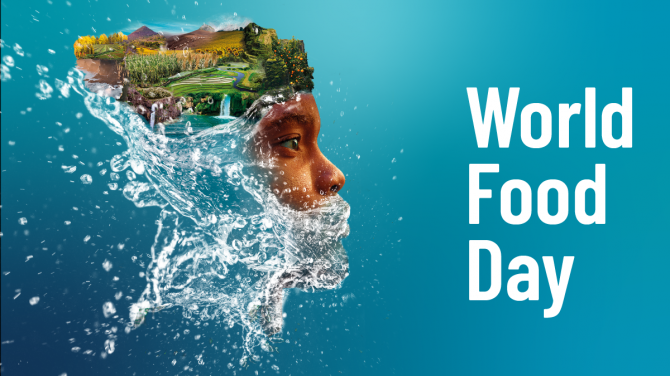World Food Day, on October 16, marks the founding of the United Nations Food and Agriculture Organization (FAO) in 1945. This year’s theme, “Water is life, water is food. Leave no one behind,” spotlights water’s crucial role in agriculture and survival. It’s more than just celebrating food; it’s a call to action against global hunger. This day also aims to educate on healthy diets. Observed in 150 countries and 50 languages, World Food Day, established by the FAO in 1979, advocates for responsible food practices globally.
The theme “Water is life, water is food. Leave no one behind” stresses water’s significance in agriculture and its impact on food production. Recognising water’s finite supply, World Food Day underscores its vital role in sustaining life on Earth.
What Can You Do To Celebrate This Day?
- Donate to a Food Bank or Charity: Provide essential food items or monetary donations to local food banks, including cookies, canned goods, beverages, and grains.
- Contribute to Charitable Causes: Support charities through fundraising efforts, ranging from events to sponsored activities. Raise awareness and funds for those in need.
- Explore Food Origins: Visit farms, dairies, or open-kitchen restaurants to gain insight into the effort behind food production.
- Participate in Events: Attend local World Food Day events, including concerts, contests, cultural performances, exhibitions, hunger marches, and marathons.
- Learn about Global Hunger: Research how different countries, like Kenya, address food scarcity. Understand the challenges and initiatives in combating hunger worldwide.
- Discover Worldwide Initiatives: Investigate how over 150 countries observe World Food Day through conferences, campaigns, and events.
- Promote Food Security: Engage in conferences like Mongolia’s Food Security conference, emphasizing research and policies to enhance food security.
- Educate in Schools: Organize special ceremonies in schools to educate students about the significance of World Food Day, as seen in Cyprus.
- Engage in Exhibitions and Conferences: Participate in events hosted by NGOs, international agencies, research institutions, and ministries, as seen in Italy.
Support Vulnerable Communities:
Contribute to initiatives targeting urban families facing food insecurity, as practised in the Philippines and Pakistan.
These activities offer various avenues to engage with World Food Day and make a positive impact on global food security.
Despite the world producing more than enough food, one in nine people still suffer from hunger, mainly in rural areas. This lack of food leads to health problems like malnutrition and chronic diseases.
Shocking figures from the FAO tell us that 670 million adults and 120 million kids (ages 5 to 18) struggle with obesity. This is because many are turning to processed, unhealthy foods. That’s why World Food Day focuses on spreading the message about balanced, healthy diets. It also supports farmers and teaches about sustainable farming. Educating people about how to fight global hunger is crucial for saving lives.









